#british immigration
Text
Black nurses have shared their experiences of racism in the workplace, as the Royal College of Nursing (RCN) commemorates the 75th anniversary of Windrush at its annual conference this week.
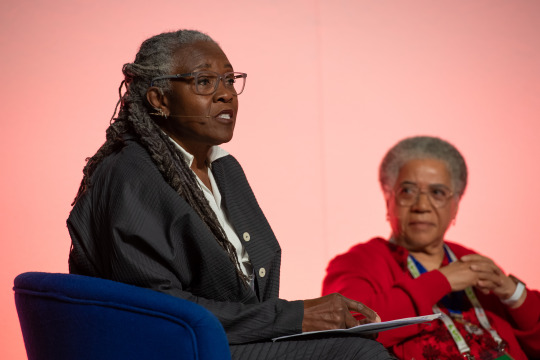
In June 2018, the then home secretary, Sajid Javid, commissioned the Windrush Lessons Learned review – a report reflecting on the causes of the Windrush injustices. The independent review was in response to mounting evidence that members of the Windrush generation were losing jobs, homes and access to benefits, as well as being denied NHS treatment, detained, and forcibly deported to countries they left as children.
The findings, alongside the testimonies of black British citizens affected by the hostile environment, are truly anguishing.
Wendy Williams, the HM inspector of constabularyappointed as the independent reviewer, has examined the key legislative, policy and operational decisions that led to the Windrush injustices, and spoken to those who suffered grave and catastrophic consequences from becoming entangled in the government’s hostile immigration policies.
Williams’ review draws a stark conclusion: the UK’s treatment of the Windrush generation, and approach to immigration more broadly, was caused by institutional failures to understand race and racism. Their failures conform to certain aspects of Lord Macpherson’s definition of institutional racism, enshrined in the Macpherson report into the murder of Stephen Lawrence, published in 1999.
Macpherson defined institutional racism as: “The collective failure of an organisation to provide an appropriate and professional service to people because of their colour, culture, or ethnic origin. It can be seen or detected in processes, attitudes and behaviour which amount to discrimination through unwitting prejudice, ignorance, thoughtlessness and racist stereotyping which disadvantage minority ethnic people.”
The Windrush Lessons Learned review pulls no punches in describing the failure of ministers and officials to understand the nature of racism in Britain. It shows how the government’s hostile environment immigration policies had devastating impacts on the lives and families of black citizens within the UK.

The fact that black British people who had spent much of their lives in Britain, working and paying taxes, were accidental victims of the government’s immigration policies, perfectly illustrates how the coalition and Conservative governments not only failed to adhere to existing race relations legislation, but also showed a complete lack of understanding about “indirect discrimination” – a concept accepted in legislation as far back as the 1976 Race Relations Act.
Neither that lesson of “unintended discrimination”, nor the definition of “institutional racism” from the Macpherson report, seem to have been learned by Britain’s policymakers and politicians. Not only is intent irrelevant for assessing whether policies are racially discriminatory, but race equality laws (including the 2000 Race Relations Amendment Act and the public sector equality duty) appear to have made little difference to immigration and citizenship policies affecting people from different ethnic groups.
This reveals a shocking lack of understanding of what racism is – namely that it’s not solely about intent. In April 2018, the dramatic apology by the then prime minister, Theresa May, showed a failure to understand this lesson, when she insisted it wasn’t her government’s intent to disproportionately affect people from the Caribbean in the operation of hostile environment immigration policy.
For policymakers and politicians to learn the profound lessons of the Windrush review, they must not only “right the wrongs” suffered by the Windrush generation (as well as those from other ethnic minority groups), but they must also understand how and why immigration and citizenship policies, and Home Office culture, have repeatedly discriminated against black and ethnic minority citizens over the decades.
The Windrush generation are owed a full apology – an apology that is based on understanding that their treatment wasn’t an accidental misfortune, but the result of institutional failure to understand the role of race and racism in Britain.
#Black nurses question how much has changed 75 years after Windrush#windrush#british immigration#british racism#Nurses of the Windrush#Black Nurses in UK#english racism#immigration iies#The Windrush review is unequivocal: institutional racism played its part#sajid javid
19 notes
·
View notes
Text
绿卡,美国绿卡,韩国留学,英国留学,英国移民,移民律师,学历提升,学历认证书,高级文凭,文凭证书,大学学位证,博士学位
Green card, green card in the United States, studying in Korea, studying in the UK, British immigration, immigration lawyers, education improvement, academic certificates, advanced diplomas, diploma certificates, university degree certificates, doctoral degrees



#绿卡#美国绿卡#韩国留学#英国留学#英国移民#移民律师#学历提升#学历认证书#高级文凭#文凭证书#大学学位证#博士学位#Green card#green card in the United States#studying in Korea#studying in the UK#British immigration#immigration lawyers#education improvement#academic certificates#advanced diplomas#diploma certificates#university degree certificates#doctoral degrees
0 notes
Text
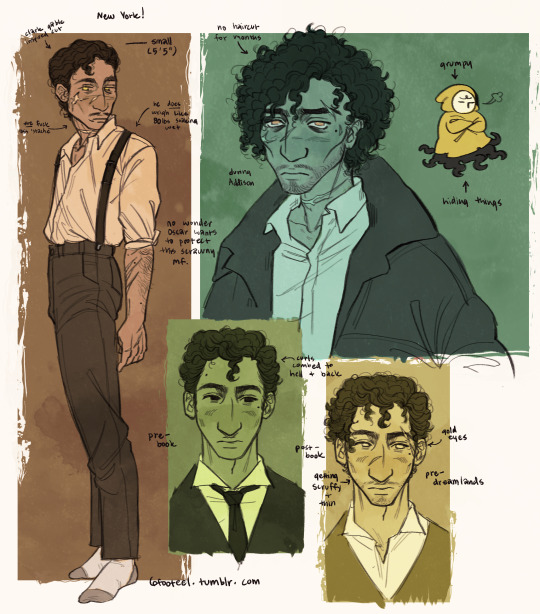
haven’t made any decisions about his colors yet so i kind of just had fun with it lol
#i have some thoughts and feelings abt him#.art#malevolent#malevolent podcast#arthur lester#john doe#he’s just a little blobby guy up there#i have some really specific thoughts abt arthur as like#the child of 2 british jews . who immigrated & then had very little connection with community before they killed themselves#and thusly he was handed off to a catholic orphanage#and so . the complicated feelings about religion#along with them being compounded by how much loss he’s had in his life. and how much suffering#i just. as a jewish dude . i have feelings abt it#it’s literally all headcanons that i’ve made up but it slots in very nicely with him so. yeah
296 notes
·
View notes
Text
"Ignoring or erasing how a person's racial and cultural background influences the things they create is erasing the part ethnic minorities play in history and the formation of different cultures"
and
"Saying that something isn't actually British/American/etc because it was created by an immigrant or someone in an ethnic minority group is another way of saying that immigrants and their children are not really part of the countries they immigrated to and they'll always be outsiders"
are both true statements.
#this is about how many people say that foods invented by ethnic and racial minorities in britain aren't actually british foods#which has some really nasty implications about how you view the place of immigrants and ethnoreligious people in society
2K notes
·
View notes
Text
I love the fact that Ruby's family are Jamaican. In an era where the British government loves demonising the windrush generation seeing a positive depiction of a British Jamaican family on a mainstream show is super uplifting
#and it also shows rtd is movong past surface level representation of just showing black faces with Martha and Mickey#and toward depicting the cultural nuances of a specific black british community#we love to see it#esp since this doctor is a black immigrant seeing him portrayed positively alongside a black immigrant family that's a slay#dw#doctor who#dw spoilers#ruby sunday#ncuti gatwa#rtd2
94 notes
·
View notes
Text
Whenever Brits are like "tea is our national drink, our culture, our personality, our mental health" I think of our hill country blanketed in a patchwork quilt of human suffering and ongoing violent colonialism and want to smash all their tea cups. Your genocidal leaf juice is nothing to be proud of. The present day tea pluckers are the descendants of the Indians you enslaved and they still live in unthinkable poverty in the line houses you built to house them like cattle. The families whose farmlands you robbed have been starving for generations. Every sip of your leaf juice is soaked in blood and you drink it like vampires.
Tea will never belong to you. It's our legacy of grief, and your shame.

Drink your tea and shut the fuck up.
#sri lanka#'but my parents were immigrants!' 'and you're living in a genocidal country that's still sucking the marrow from the global south. so.'#'but my parents were indians!' 'ok? drink your chai and think about the stateless south indian tea pluckers? what is your point?'#if you live in britain you enjoy the fruits of its empire even if you're at the bottom of the food chain#that's why middle class Asians and Africans migrate to europe even if it means they have to earn a living on minimum wage#you can't share a race and country with sue braverman and tell me that your origins can make you any less complicit#british culture#tea#british empire#colonialism#british colonialism#colonization#extractive colonialism#tourism#capitalism#indigenous rights#indian ocean slavery#slavery#white supremacy#knee of huss#food culture#cash crops#monoagriculture#ecocide
47 notes
·
View notes
Note
What ethnicities do you headcanon Evan, Barty, and anyone else as? Ok if you don’t wanna answer, Just curious.
oh of course! i'll put it under the cut so i can talk about nationalities too. nothing on earth could compel me to imagine them all british.
my barty is balkan! i feel really strongly about this one... i see him as croatian, which in canon-times would make him yugoslavian. i think he's filipino on his mother's side though!! but without a strong connection to his culture on that side because of his dad :(
my rosier twins are egyptian but i also enjoy the headcanon that their family immigrated to the czech republic when they were ~13
james is desi, the black brothers are mixed korean (just like meee), lily is distantly polish, and remus is insanely german <- real ones will remember the berliner remus era of this account.
#a#in canon i accept that they're british so i can think about pureblood estates & land holdings#but idk. in modern au I like having them be from different countries#i need every character to be mixed from an immigrant family like me or I die
44 notes
·
View notes
Text
In a world where discussions of immigration and national identity often spark controversy, Britain's history offers a complicated story that challenges certain nationalist and anti-immigration policies. From the ancient Romans to the post-World War II Windrush Generation, waves of immigrants have left an indelible mark on British culture.
Robert Winder's seminal work, “Bloody Foreigners,” sheds light on this rich tapestry of diversity, revealing how seemingly quintessential aspects of Britishness are, in fact, imports from other cultures.
Delving into Britain's multicultural past uncovers a story of resilience, adaptation and integration, where cultural exchanges have contributed to Britain's national identity. In fact, many aspects held dear as quintessentially "British" are actually cultural imports integrated into everyday life.
20 notes
·
View notes
Text
canonically, Year of the Dragon occurs during Napoleon’s invasion of England, but let’s imagine a happier world where Temeraire and friends are in China and watching fireworks/eating dumplings/getting red envelopes full of shiny things like the royal guests they are
#temeraire#happy lunar new year if there’s anyone in the fandom celebrating#I am tempted to maybe do a micro-fic if I can find time#Laurence WILL be forced into the fancy robes for chun jie#historically there’s no real British Chinese diaspora until the 1850s or so but let’s pretend otherwise#all these immigrants are extremely excited about their local prince of China#Laurence can defeat napoleon but he cannot defeat a contingent of eager Asian grandmothers
46 notes
·
View notes
Text
writing new characters for supernatural but british and this story wants so bad to say something about the concept of migration and immigration and the consequences of leaving your home and building a new one. And I don't know what it wants to say about that or why
#I'm not doing this on purpose!!!!!!!#also fun fact I am toying with the idea of Will's family being Travellers who gave up their nomadic lifestyle a generation back or so#it would add a really intresting thematic element to him wandering now#to clarify I have no problem with this theme I'm just like ???? what are you trying to do what is the point you are trying to make about it#in fairness it is in large part my fault because I'm trying to depict accurately british diversity. and because this is a story about#folklore and thus history and roots. it by necessity also talks about immigration.
34 notes
·
View notes
Text
Still angry abt that time I (a Sephardic British person) made a post about Sephardic contributions to British culture and people STILL came in my notes to make fun of British culture when they clearly don’t even know anything abt the country. Mocking immigrants and poc isn’t cool just bc we’re British you know.
#everyone is so stupid about immigration to the UK.#at a certain point it’s just open bigotry hiding behind hating British people. it’s so transparent and y’all think we don’t notice.
20 notes
·
View notes
Note
could you perhaps share The Manual so that we, too, may read up on enemy speech? much obliged <3
Okay but im keeping the asks themselves in my inbox for my convenience. I was not exaggerating about basically being handed a manual btw here you go, lol:
Anon #1 (part 1/2)

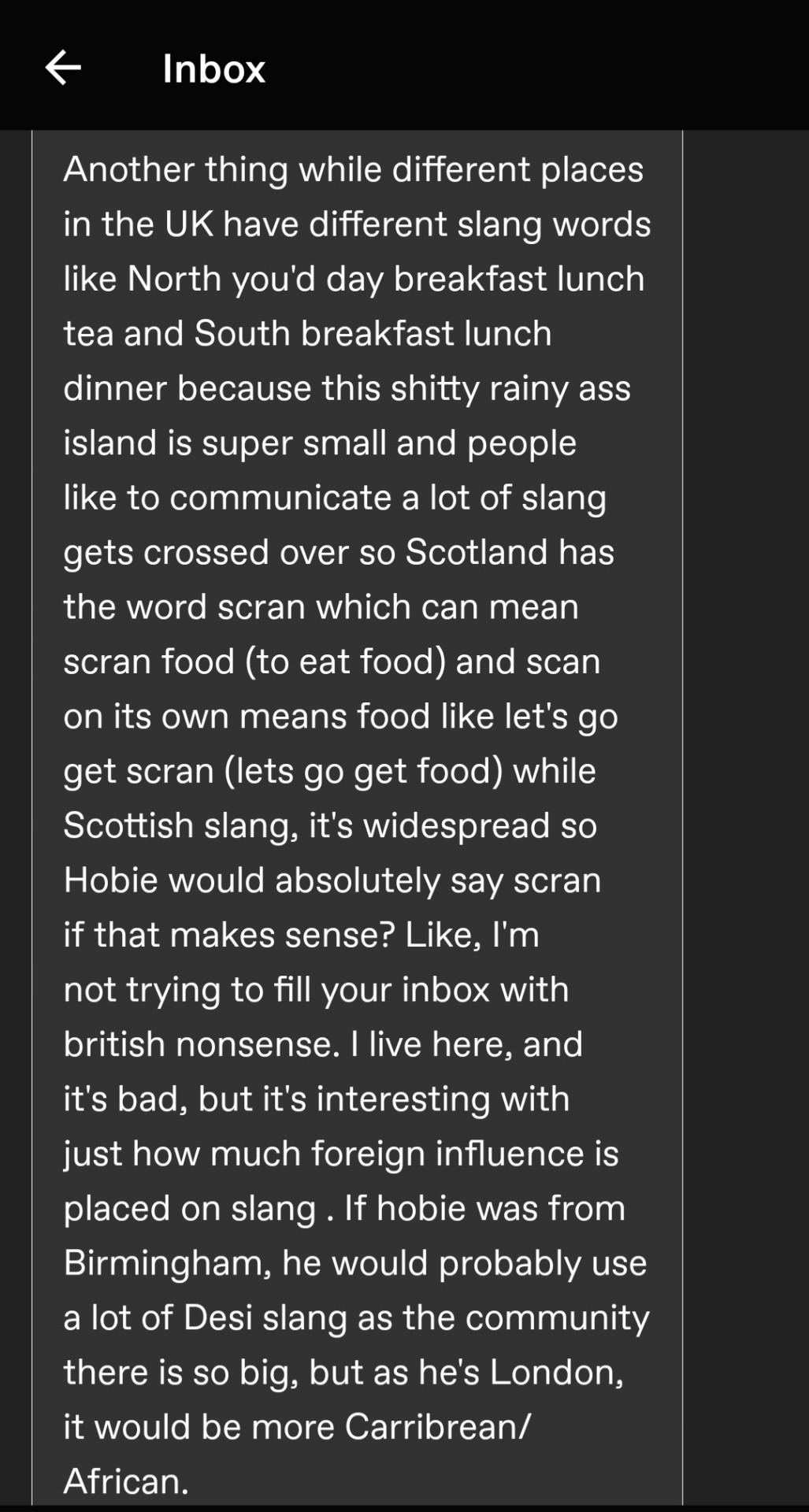

Anon #1 (part 2/2)

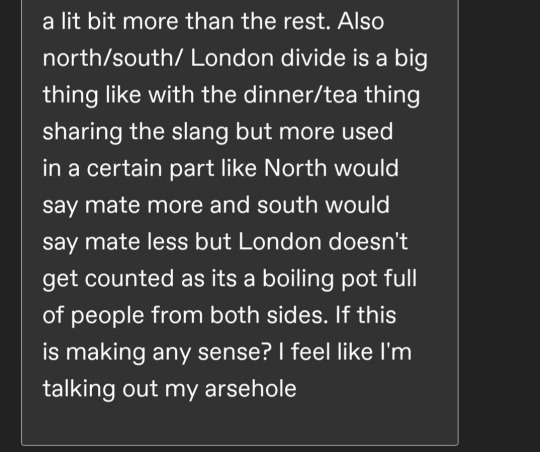
Anon #2
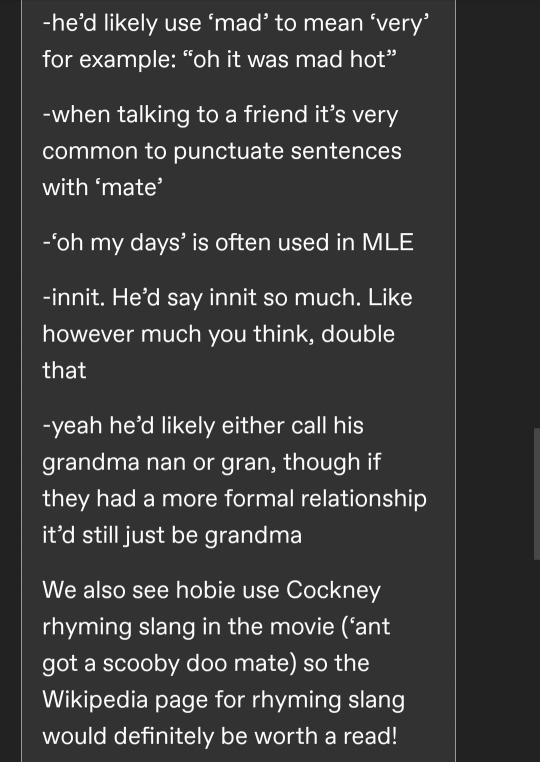

Anon #3

#i would thank the helpful anons but i will NEVER thank the British-#jk thanks guys i learned more than i thought i would#id literally never heard of cockney rhyming or north and south london regional divisions#and the stuff about why Pav would be familiar with the slang was interesting too#as well as all the immigration stuff etc dbsjdndns i love this kind of thing#asks#hobie brown
64 notes
·
View notes
Text
I’m going to rewrite fnaf to be fully sci fi just to spite those “fnaf is too sci fi now” guys
#fuck you William Afton is an alien from outer space now#jk lol there’s not gonna be any space aliens just British immigrants who decided to move to UTAH of all places#fnaf#fnaf rewrite
24 notes
·
View notes
Text

A Victorian Era Candle-lit Christmas Tree, late 1800s.
Christmas was not celebrated in modern Europe and America as a familiar way until the mid-1800s.
Christmas only became an American federal holiday in 1870.
Before 1840, most people hadn’t heard of Christmas trees, Santa Claus, or Christmas cards, or even Father Christmas, let alone Rudolph and his red nose.
The reason for the change in the Victorian era was the massive change of industrialization.
Many new machines and inventions were becoming popular, especially factories.
Many people had more money as a result, then they began to spend more and more time with their families.
In United States, Christmas had different meanings for Americans who came from different cultural and religious backgrounds.
Many immigrants brought Christmas traditions from their own countries.
Dutch and German immigrants especially brought ideas like Christmas trees and Santa Claus to their new homes, and helped spread these ideas throughout their communities.
The idea of Christmas trees originated in Germany and became a standard Christmas decoration during the Victorian era — thanks to Queen Victoria and her husband, Prince Albert.
The Queen and Prince Albert had German roots, and when they published a photo of their Christmas tree, people were inspired to try this tradition themselves.
In these early Christmas trees, the presents were actually tied to the branches themselves.
Early Christmas trees didn’t have strings of lights like we do today, so they used candles instead – with a bucket nearby in case of fire.
The Victorians loved to decorate and went all-out for Christmas decorations with lots of greenery, sparkling knickknacks, and rich colors.
In a time before big-box stores and shopping centers, many people made their own decorations with paper and fabric scraps.
#Christmas Tree#Christmas#Victorian Era#1800s#19th century#Queen Victoria#Prince Albert#British Royal Family#Europe#America#immigrants
21 notes
·
View notes
Text
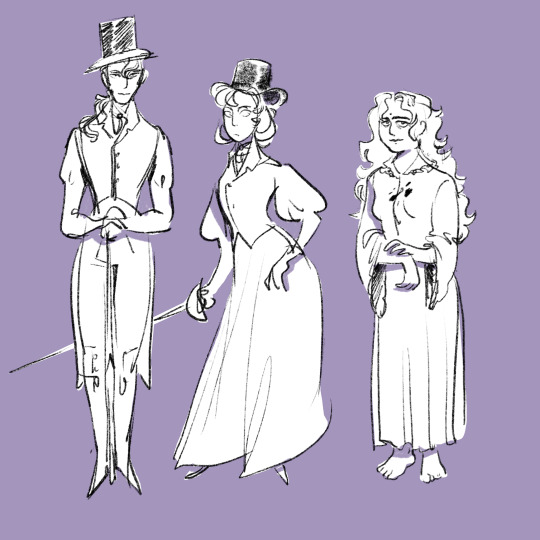
Since that gothic anthy piece I've been thinking about a whole gothic rgu au... I'd really have to dig in deeper into indian-british history in order to develop this further (and to dress everyone more accurately) but I'm tentatively placing this in the 1830s... Akio could be an indian nobleman who worked with/for the east india company... Maybe did some shady stuff for it and was rewarded with a lavish mansion in the uk... Utena is some plucky orphaned girl who becomes his protégé... Anthy is the woman hidden away in the attic... But utena glimpses her at night... Mrs rochester core...
#revolutionary girl utena#akio ohtori#utena tenjou#anthy himemiya#this is just a rough proof of concept i could see some variations too#like maybe anthy instead of being hidden away is posed as akios servant and utena finds out later they're siblings#and maybe akio instead of immigrating from India himself is the son of someone who did#or the son of a british officer and an indian woman#the old decaying mansion is a gothic staple so itd fit more if it wasnt new and built for an upstart#and maybe it could be the 1850s instead of the 1830s to coincide with indian rebellion against colonial rule#and maybe utena could be a servant akio seduces so its more a la jane eyre#and maybe utena is in mens clothes rather than just vaguely masculinised womens clothes......#much to ponder! but i think the base concept is solid#since holding onto past glory and unnerving architecture and incest are such big staples of gothic fiction#and since the presence of indian characters would make sense in Victorian england
18 notes
·
View notes
Text
Irish history podcast
I've seen my fair share of people who just don't seem to understand the reasons behind Irish people's general disliking of England/Britain. Many people don't even understand that Irish and English people are not the same (thinking back to that Cillian Murphy interview where the interviewer kept insisting that Irish and English are basically the same identities).
While I want to make a more in-depth post about some of the reasons for the Irish disliking of England, I want to leave an enlightening podcast episode linked below. I've been listening to this podcast, which is written, narrated, and produced by Fin Dwyer, for many months now and I've deeply enjoyed the content. This particular episode, titled "Anti-Irish Racism in 1930s Britain", was just released today and it provides a very surface level introduction to some of the discrimination that Irish people have faced at the hands of British (and Scottish) people within England and Scotland.
#irish history#ireland#irish#history#colonialism#immigration#anti immigration#fuck the British#Spotify
50 notes
·
View notes